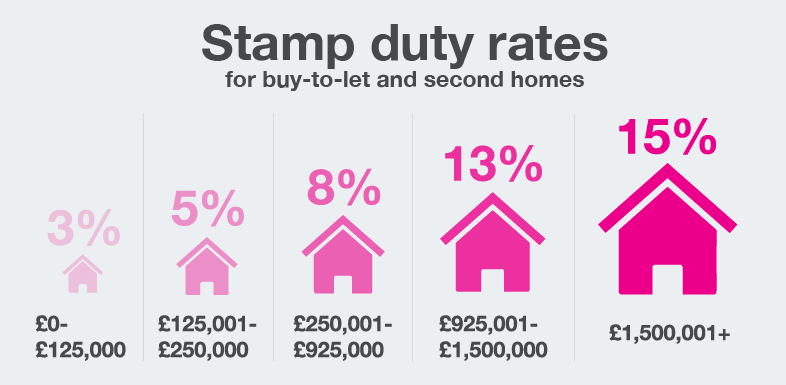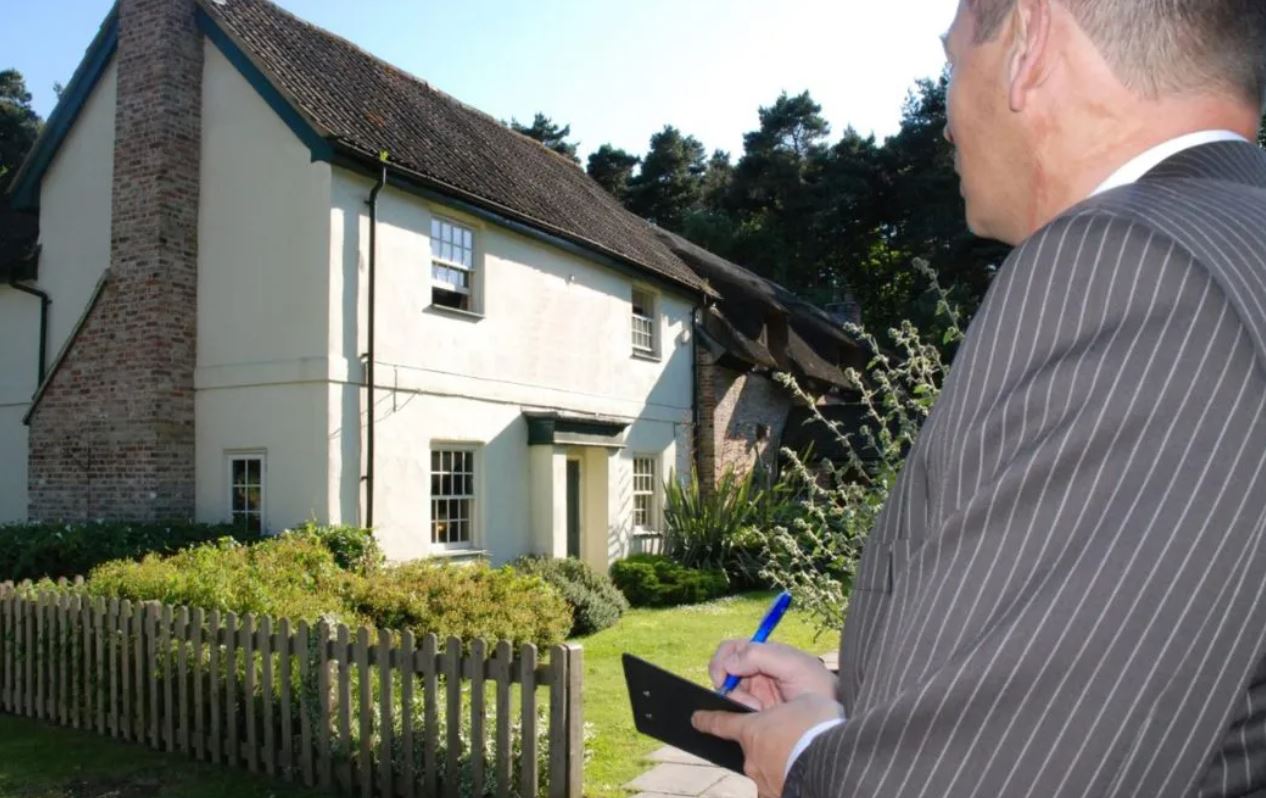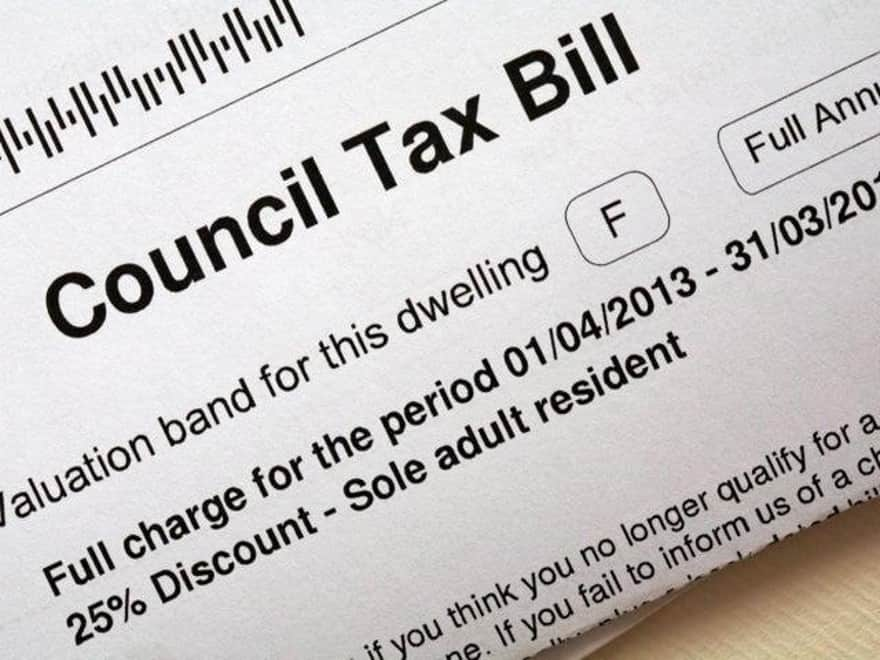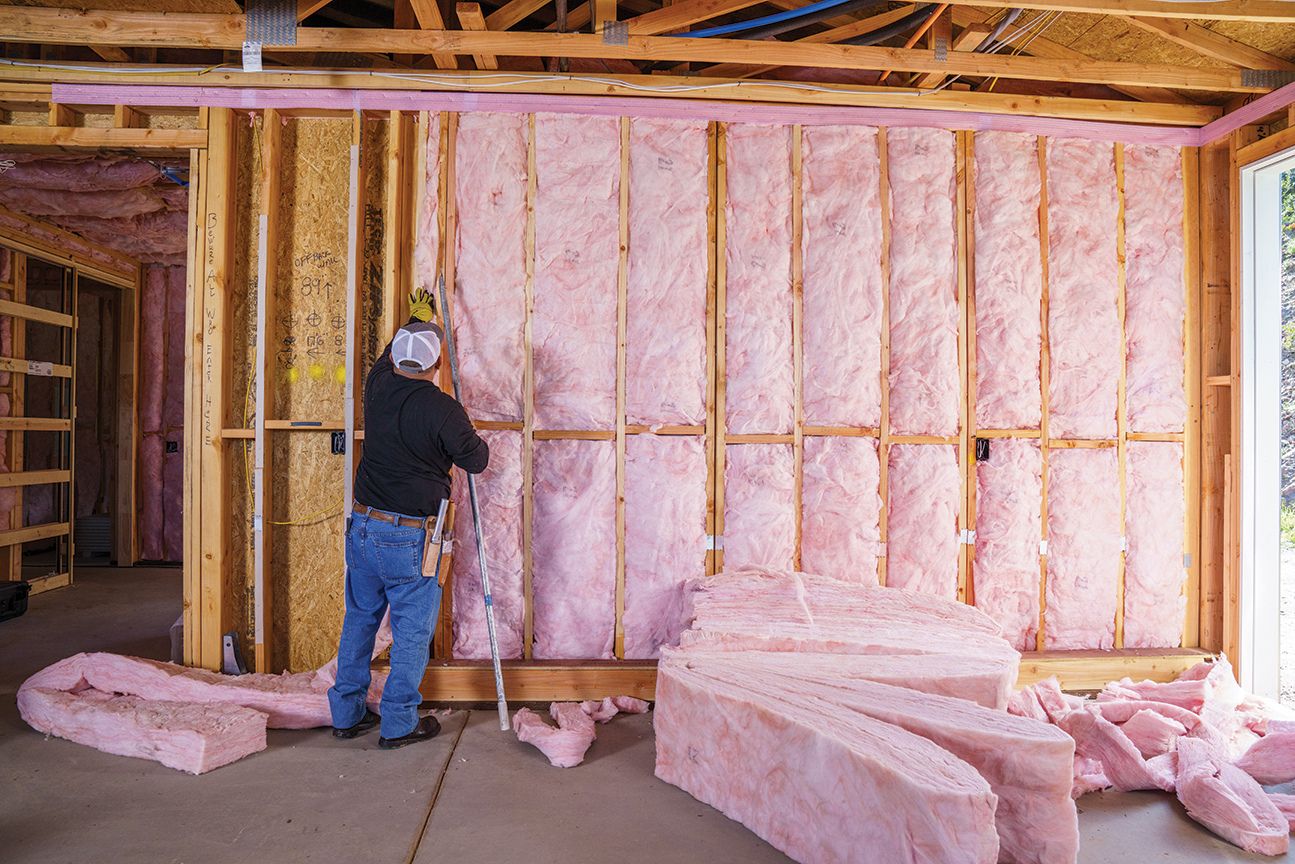Calculate the Actual Expenses of Purchasing a Property

The process of buying a home is far more intricate than simply securing a mortgage, obtaining the keys, and moving in. Purchasing a home typically incurs costs beyond what many people anticipate. Here are key considerations before making a house purchase: Mortgage Arrangement Fee: Lenders usually charge an arrangement fee, commonly around £1,000. It's important to note that this fee might be non-refundable, even if the purchase falls through. Valuation Fee: Lenders assess a valuation fee to confirm the property's existence and its suitability as collateral for the loan. This fee varies based on the lender and purchase price, but setting aside around £300 is advisable. Legal Fees: While some lenders contribute to legal fees, if you opt for your own conveyancing, you can expect to pay between £500 and £800, depending on the purchase price. Stamp Duty: If the property costs more than £125,000, you typically need to pay stamp duty land tax on the purchase price, unless you're a first-time buyer purchasing a home under £500,000. Temporary changes in regulations might exempt some buyers. Surveys: Property surveys are crucial but costly, ranging from £400 to £700. Many buyers end up paying for surveys even if the deal falls through, so budget for multiple surveys. Removal Costs: Unless you can transport your belongings in your own vehicle, budget for a removal van. Costs start at £100 for local moves but can reach £1,000 for long-distance relocations. Home Repairs: Allocate funds for unexpected property maintenance, whether it's fixing paintwork or repairing leaky sinks. Older houses might require extensive repairs and renovations. Furniture and Additional Items: If you're transitioning from a furnished rental, be prepared to purchase furniture, appliances, and household essentials such as lamps, carpets, and kitchenware. Don't overlook the basic yet essential items like light bulbs, toilet brushes, and extension leads. Exploring platforms like Freecycle and Freegle can help you find some of these items for free. Planning for these additional expenses is essential to avoid financial surprises during the homebuying process.
Check the value of your house on Mouseprice
Looking for a mortgage

For the majority of individuals, a mortgage represents their most significant financial commitment, and even slight variations in the borrowed amount can yield substantial consequences. It is crucial to establish a clear timeline for accumulating the necessary funds for your initial deposit. You can find a mortgage with one of our partners here: Mortgages When it comes to the deposit size, government initiatives like Help to Buy have broadened the mortgage options for individuals capable of putting down a 5% deposit. However, it's worth noting that borrowers at this level often face higher interest rates. More competitive mortgage deals are available at the 10% or 15% deposit thresholds, and to secure the most favourable rates, a substantial 25% deposit is typically required.
Stamp Duty: Determining Your Payment

Stamp duty, named so because the transaction used to require a stamped document to be legal, is a significant lump-sum tax incurred when purchasing a home. It can substantially increase your expenses, potentially adding thousands of pounds to your costs—although due to temporary changes, many buyers might currently be exempt from paying this tax. What is stamp duty? Stamp duty is a tax imposed by the government on certain transactions, typically related to property purchases and legal documents. The specific details and rates of stamp duty can vary significantly between countries and regions. However, I'll explain the concept generally and how it applies to property purchases in many countries. In the context of property transactions, stamp duty is a tax that homebuyers need to pay when buying a property or land. The tax is usually based on the purchase price or property value, and it's a one-time payment made to the government. The purpose of stamp duty can vary, but it often serves several purposes, such as generating revenue for the government, regulating property markets, and discouraging speculative buying. Here are a few key points about stamp duty: Taxable Transactions: Stamp duty is typically applied to various transactions, including property purchases, lease agreements, and certain legal documents. However, the focus here is on property purchases. Calculating Stamp Duty: The amount of stamp duty a buyer needs to pay is usually calculated based on the property's purchase price or market value. The higher the property's value, the higher the stamp duty amount. Exemptions and Discounts: Some regions offer exemptions or discounts on stamp duty for first-time homebuyers or properties below a certain price threshold. These exemptions and discounts are often implemented to make homeownership more accessible, especially for lower-income individuals and families. Payment Responsibility: In most cases, the responsibility for paying stamp duty falls on the buyer. It's a crucial consideration during the homebuying process, as buyers need to budget for this additional cost. Legal Requirement: Paying stamp duty is a legal requirement. Failing to pay the required stamp duty can lead to legal consequences and complications in property ownership. It's important to note that the specific rules, rates, and exemptions related to stamp duty can vary significantly depending on the country, state, or region in which the property transaction occurs. Therefore, it's essential for buyers to research and understand the stamp duty regulations applicable to their specific location when engaging in a property purchase.
Calculate Stamp Duty here: https://www.stampdutycalculator.org.uk/
Did you know you can get £1000 free a year for first time buyers?

Young adults between the ages of 18 to 39 who are venturing into their first home purchase can benefit from a valuable government initiative. The Lifetime ISA, introduced in April 2017, offers a unique opportunity for first-time buyers to receive financial support. By opening a Lifetime ISA, eligible individuals can save up to £4,000 annually, either as a lump sum or through periodic contributions. The government enhances these savings by adding a 25% bonus, making it a potential total of £5,000 if the full allowance is utilised, before factoring in any interest or growth. The government's maximum contribution over the years amounts to £32,000, resulting in a substantial sum of £160,000, inclusive of the bonus, that can be utilised towards the purchase of a first home. However, it's important to note that it would take 32 years to reach this maximum level. To qualify for the bonus cash towards your first home, the Lifetime ISA must be active for at least 12 months.
Find our more here: https://lifetimeisa.campaign.gov.uk/
Secure Home Insurance Quotes Before Making a Purchase

Securing the right home insurance is a vital step in the home-buying process, ensuring your property and possessions are adequately protected. Waiting until after the purchase is finalized to obtain insurance quotes might lead to potential concerns, especially if the property is located in a flood-prone area or a region prone to other natural disasters. It's crucial not to assume that the insurance offered by your mortgage provider is your only option. While it might seem convenient to opt for insurance through your lender, this choice can often be costly. Mortgage providers may have limited options and might not offer the most competitive rates in the market. To find the best and most affordable coverage, it's essential to gather multiple insurance quotes. Since different insurers offer varying rates and coverage options, comparing quotes is the key to securing a policy that suits both your needs and your budget. Don't settle for the first quote you receive; instead, take the time to shop around and explore the offerings from different insurance providers. To streamline your search for affordable home insurance, consider consulting comprehensive resources like our Cheap Home Insurance guide. This guide lists top providers and offers insights into their policies, helping you make an informed decision. By comparing quotes from reputable insurers, you can find the coverage that offers the best value for your money, ensuring your new home is safeguarded without putting unnecessary strain on your finances.
Find out which companies are the best here
Be shrewd when accepting a loan offer

Embarking on the exciting journey of house hunting requires careful financial planning to ensure a smooth and stress-free experience. One of the first and most crucial steps is determining your borrowing capacity. While lenders can provide estimates of what you can afford, it's unwise to rely solely on their assessments. Struggling with mortgage repayments might lead some lenders to offer additional credit options, which can exacerbate your financial burden in the long run. To safeguard your financial stability, it's imperative to establish a clear budget and stick to it. Focus your property search solely on homes that fall within your budgetary constraints, avoiding even the slightest excess. Falling in love with a house that stretches your financial limits can lead to compromised stability or inevitable disappointment later on. By being mindful of your financial boundaries, you ensure a secure and stress-free home-buying experience. Creating a realistic budget involves not only considering the initial purchase price but also factoring in additional costs such as property taxes, insurance, maintenance, and potential renovations. Assess your monthly income against these expenses, accounting for fluctuations in interest rates and unexpected life events. By understanding your financial limitations and planning for contingencies, you can make informed decisions that align with your budget and long-term financial goals. Additionally, seeking pre-approval for a mortgage from multiple lenders can provide a clearer picture of your borrowing capacity and help you negotiate better terms. Pre-approval not only demonstrates your seriousness as a buyer but also sets a firm financial foundation for your house hunting endeavours.
Utilise Free Online Tools for Property Price Evaluation

The internet has revolutionized the way we gather information, making it easier than ever to access valuable data about properties. In the past, this privilege was exclusive to real estate agents and brokers, but now, with the right approach, you can obtain essential price information for free. Utilizing online resources can empower you with knowledge and confidence during your property search. Websites like Mouseprice have become valuable tools for prospective homebuyers. They offer historical data, allowing you to explore the sale prices of homes over several years. By studying this information, you gain insights into property trends, helping you make informed decisions about your investment. Understanding the historical prices of homes in a particular area can also aid in negotiations, allowing you to assess whether a property is reasonably priced in the current market. Another excellent online resource is PropertyHeads, which provides a comprehensive database of property advertisements. What sets PropertyHeads apart is its ability to match sold prices with detailed property listings. These listings include not only pictures but also asking prices, descriptions, and floor plans. This comprehensive information enables you to compare properties effectively, evaluating their features and prices to find the best match for your needs and budget. By leveraging these online platforms, you can conduct thorough research from the comfort of your home. Armed with knowledge about historical prices and detailed property listings, you can approach the property market with confidence. These resources empower you to make well-informed decisions, ensuring that you find a home that meets your requirements and aligns with your budget. Take advantage of the wealth of information available online, and embark on your property search fully equipped to find your ideal home.
Typical timeline for the property buying process in England and Wales

Find a Property: Conduct thorough research on the area, explore local estate agents, and browse various property search websites. Put in an Offer: Communicate your proposed purchase price and any conditions to the seller. Offer to Exchange (2 to 6 weeks): If your offer is accepted, arrange for a survey to assess the property's condition. Simultaneously, your solicitor examines any legal issues. Exchange: Pay your deposit, signalling a commitment to the purchase. At this stage, backing out incurs significant costs. Exchange to Sale (instantly to 4 weeks): Finalise the sale process, which involves transferring the rest of the payment in exchange for the keys and legal documents, officially making the property yours. Before applying for mortgages, it's crucial to check your credit files at major agencies to ensure they are error-free. Even small mistakes can lead to rejection, so review your credit files diligently, correcting any inaccuracies.
Arranging a Mortgage In Principal (MIP)

When venturing into the realm of mortgages, obtaining a "mortgage in principle" (MIP) can significantly streamline your homebuying process. A mortgage in principle is a provisional agreement from a lender indicating the amount you can borrow, provided you find a suitable property within a specified timeframe. Having a mortgage in principle not only gives you a clear understanding of your borrowing capacity but also enhances your position when making an offer on a property. In the competitive real estate market, having proof of your deposit and a mortgage in principle can make your offer more appealing to sellers. It demonstrates that you are a serious buyer with financial backing, giving sellers confidence in your ability to secure the necessary funds for the purchase. This can potentially give you an edge in negotiations and increase your chances of securing your desired property. However, it's essential to note that mortgage in principles do not provide guarantees. The final mortgage offer is subject to a property valuation and a more detailed assessment of your financial situation by the lender. Therefore, it's crucial to consult a reliable mortgage broker who can guide you through the process and provide valuable insights based on your specific circumstances. Additionally, it's important to stay vigilant about fluctuating mortgage rates. Mortgage interest rates can change daily, and even a slight difference in the rate can have a significant impact on your monthly payments and overall borrowing costs. Keeping yourself updated on potential better deals in the market ensures that you secure the most favorable terms for your mortgage.
Find Affordable Conveyancers

Conveyancing involves the legal process of transferring property ownership from one person to another. Apart from solicitors, there are licensed conveyancers, specialised property lawyers, who handle this task. They meticulously examine official documents, ensuring there are no hidden complications, and verify the legitimacy of the purchase. Conveyancers handle all legal paperwork, conduct Land Registry and local council searches, draft contracts, and manage cash exchanges. Typically, this isn't something you can handle on your own, and the costs generally range from £100 to £1,500. Here are some dos and don'ts to keep in mind: DON'T automatically opt for the estate agents' recommended firm. While it might be a commission-based suggestion, it's worth consulting them and using their quote as a reference point. DO obtain multiple quotes swiftly. Websites like Reallymoving.com allow you to answer a few questions, receiving at least four quotes from firms in your area. The Law Society's Find a Solicitor tool also lists accredited firms in the housing and property section. Seeking recommendations from friends is also a good approach. DON'T assume proximity is essential. Consider conveyancers located farther away. You can engage a solicitor in Newcastle even if you reside in central London, potentially saving costs. DO explore online options. Use internet-based conveyancers that conduct transactions over the phone and online. However, as with any solicitor, feedback varies, so research thoroughly before making a decision. DON'T always go for the lowest price if time is crucial. Budget conveyancers might work in bulk and could be slower. If time is of the essence, choose a professional firm that responds to emails promptly. DO scrutinise for hidden charges. Request a detailed fee breakdown. Does it cover bank money transfer fees, stamp duty forms, land registration fees, and drainage and environmental searches? Some firms may charge extra for ID verification. DON'T automatically stick with the solicitor who handled your divorce. Opt for a firm specialising in conveyancing or one with a dedicated department. Inquire about the number of cases they handled in the previous year, as previous services might not be indicative of their conveyancing expertise. DO inquire about additional services. Some solicitors might offer a free will service when engaged for conveyancing. Take advantage of this option, and explore other no-cost or low-cost will services. DON'T hesitate to seek clarifications. Ensure you fully comprehend what your legal adviser will and won't do on your behalf. DO verify their professional regulation. Solicitors are regulated by the Law Society, and conveyancers are overseen by the Property Law Regulator. Regulated professionals must have a clear complaints procedure in place. DO check their availability. Confirm if the solicitor has any planned holidays within the next three months. If their absence coincides with your preferred completion date, consider other options. DO clarify costs in case of a sale collapse. If a sale falls through, lawyers might charge a fee for the work done, even if it was the seller who withdrew. Some firms offer a "no move, no fee" service, but certain expenses like search fees might not be covered.
Refinancing Your Mortgage

Refinancing your mortgage can be compared to undergoing a transformative financial makeover, much like opting for liposuction to sculpt your budget. The impact of refinancing on your financial health is nothing short of remarkable. Even a seemingly modest change, such as a 1% reduction in interest rates on a £100,000 outstanding mortgage, can result in substantial savings. To put it into perspective, this reduction translates to saving £80 every month, offering a significant boost to your financial well-being. Much like liposuction removes excess fat and reshapes your body, refinancing trims down unnecessary expenses, allowing you to streamline your finances and allocate your resources more efficiently. The monthly savings generated by refinancing can be channelled towards various essential aspects of your life, whether it's bolstering your savings, investing in your children's education, or planning for a well-deserved family vacation. Moreover, just as liposuction enhances your confidence by sculpting your physique, refinancing can provide a newfound sense of financial security and peace of mind. By optimizing your mortgage terms, you not only reduce your monthly expenditure but also create a stable foundation for your financial future. This enhanced financial confidence can empower you to pursue your goals, whether they involve upgrading your home, starting a business, or retiring comfortably. In essence, the process of refinancing your mortgage is akin to undergoing a financial transformation that revitalizes your budget and elevates your financial well-being. Just as liposuction reshapes your body, refinancing reshapes your financial landscape, allowing you to enjoy the freedom and flexibility that come with smart financial management. By taking the initiative to explore refinancing options, you embark on a journey toward a healthier, more prosperous financial future, one that aligns with your goals and aspirations.
Ask the Neighbours

Regardless of how luxurious a residence may be, the importance of its location cannot be overstated. At PropertyHeads, we wholeheartedly agree that the neighbourhood and its surroundings play a pivotal role in the decision-making process when it comes to choosing a home. That's why we have introduced our innovative "Ask The Neighbours" section on our property listings, enabling prospective buyers to connect directly with the local community. Our Ask The Neighbours feature allows you to pose questions about the neighbourhood directly to the residents themselves. Each question you ask is posted in the local group for that specific area, ensuring that you receive authentic and first-hand insights from the people who know the neighbourhood best – its residents. Engaging with the locals is a valuable step in gathering insights about the area. Beyond our platform, we encourage you to reach out to law enforcement officers, Neighbourhood Watch coordinators, and community leaders to gain first-hand information about safety, community initiatives, and the overall atmosphere. Their perspectives can provide you with a deeper understanding of the neighbourhood dynamics and its liveability. For those entirely new to the area and seeking a comprehensive experience, we recommend considering a short stay in a local bed and breakfast or an Airbnb room. Immersing yourself in the community by residing there temporarily allows you to truly grasp the neighbourhood's vibe, interact with residents, and explore local amenities and attractions. This first-hand experience provides invaluable insights into the daily life of the neighbourhood and can greatly influence your decision-making process. By actively engaging with the local community, consulting with authorities, and immersing yourself in the neighbourhood's environment, you can make a well-informed decision about your prospective home. At PropertyHeads, we believe that understanding the neighbourhood is not just about finding a house but discovering a place where you can truly belong.
Get as much information as possible

When preparing to make an offer on a property, it's essential to ask a multitude of questions and secure crucial answers in writing. No query is too trivial; sometimes, subtle reactions can reveal valuable insights, even if the responses provided aren't entirely truthful. Here are our top 20 questions to consider, reorganised for clarity: How long has the property been on the market? How many viewings has it had? How many offers have been made? Can I see the reports for electrical and gas installations checks? What is the duration of the lease (if applicable)? Have there been any neighbour disputes? Why are the vendors moving, and are they certain about selling now? What renovations have been carried out? How old is the boiler, and when was it last inspected? When was the property last rewired? Where are the vendors moving, and is there a chain involved? If it's a flat, what are the service charges and ground rent? (Explore more about charges.) Who lives in the neighbouring units - upstairs, downstairs, or next door? How long has the seller lived in the property? What items are included in the sale? White goods? Curtains? Wood burner? Are there any parking-related issues? If there's a real fireplace, is it safe to use? Have there been any problems with subsidence? What is the council tax band? (Also, verify this independently.) Has there been any history of serious incidents, like a murder, at this address? (Additionally, conduct a Google search for the property's address.) By obtaining comprehensive answers to these questions, you can make a more informed decision when considering a property purchase.
Capture Photos During Your Viewing

When embarking on the journey of property hunting, it's easy for the details of multiple homes to blur together in your memory. To combat this, it's a wise strategy to utilize your mobile phone and take pictures during your property visits. These photos can serve as invaluable reference points, helping you differentiate and recall the unique features of each home you explore. Consulting with the estate agent before snapping photos is a good practice, but don't hesitate to capture images that are relevant to your decision-making process. Taking pictures allows you to document specific aspects of the property, such as room layouts, architectural features, or any potential issues you might want to address later. It provides a visual record that you can review at your own pace, helping you make well-informed decisions. The act of taking photos should not be perceived as intrusive. It's a practical and common practice in the real estate industry. Estate agents understand that homebuyers often take pictures during viewings to aid their memory and assessment process. By capturing images, you create a visual diary of your property visits, allowing you to revisit and compare the homes you've seen, ensuring that you make a confident and informed decision when the time comes to choose your new abode.
Visit at Various Times Throughout the Day

When considering a property purchase, it's crucial to gain a comprehensive understanding not only of the flat itself but also of the surrounding neighbourhood. One effective strategy to achieve this is by visiting the property on three separate occasions, each at different times of the day. This approach offers valuable insights into various aspects of the property and its environment. Visiting the property during daylight hours provides an opportunity to assess its condition thoroughly. Natural light can reveal flaws or imperfections that might not be as noticeable in artificial lighting. This is the ideal time to scrutinize the property's structure, fixtures, and overall aesthetics. However, it's essential to be aware that some issues, such as disturbances from neighbours, might only become apparent during specific times of the day. To gain a comprehensive understanding of the property's ambiance and potential challenges, it's crucial to visit at different times, including evenings and weekends. During these periods, you can assess the noise levels and overall atmosphere of the neighbourhood. Pay attention to factors such as traffic noise, the behaviour of neighbours, and any potential disturbances. For instance, loud music or noisy gatherings from neighbouring flats might only become evident in the evenings when people return from work or on weekends when social activities are more common. Evaluating the property at various times helps you grasp its true character and the environment it's situated in. By doing so, you can make a well-informed decision, taking into account both the property's positive aspects and any potential challenges. This thorough approach ensures that you not only appreciate the property's strengths but also consider its compatibility with your lifestyle and preferences, allowing you to invest in a home that truly suits your needs.
Receive Notifications on New Properties

When it comes to securing your dream home in a specific area or on a particular street, staying ahead of the competition is key. PropertyHeads offers a valuable tool to assist you in this endeavour: the alert feature. By leveraging this feature, you can gain a significant advantage in the competitive real estate market. Here's how it works: if you have a specific neighbourhood or street in mind, you can set up a tailored alert on PropertyHeads. This intuitive feature allows you to receive email notifications promptly whenever a property matching your criteria is listed in your desired location. All you need to do is enter the postcode or area of interest and click 'save search,' and you will be automatically updated whenever a new property becomes available. This proactive approach to property hunting ensures that you are among the first to know about new listings, giving you a distinct edge over other potential buyers. In a market where timing is often of the essence, being promptly informed about property availability can make all the difference. Furthermore, setting up alerts on PropertyHeads not only saves you precious time that you would otherwise spend manually searching for listings but also reduces the risk of missing out on a desirable property. By receiving instant notifications, you can swiftly assess the property's details and take immediate action if it aligns with your preferences and budget. In addition to the convenience it offers, this alert feature empowers you to make well-informed decisions. You can thoroughly evaluate the properties that match your criteria, compare them, and conduct in-depth research before making a move. This level of preparedness significantly enhances your chances of making a successful and satisfying investment.
Look for a Lease of at Least 83 Years

When dealing with a leasehold flat, you're essentially renting it for a specific duration. Flats with 80 years or less left on the lease can lead to costly extensions and make selling the property much more challenging. When the lease drops below 60 years, it becomes especially problematic. As a prospective flat buyer, it's crucial to be cautious if a lease is approaching or falls below the 80-year mark. Don't solely rely on estate agents' assurances of easy lease extensions. To extend a lease, you must have owned the flat for two years. While the seller can initiate the process and transfer the rights to the buyer, waiting until after the purchase means an additional two-year wait before the right to extend is granted. The lease extension process typically takes between three and 12 months, so it's wise to seek properties with at least 83 years left on the lease.
Exercise Caution with Leaseholds on New-Build Houses

In late 2016, a concerning issue came to light concerning buyers of new-build properties being ensnared in a leasehold predicament. Some owners of new-build leasehold houses discovered that the freehold on their properties had been sold to an agency or investment company without their knowledge (the right of first refusal only applies to leasehold flats, not houses). These organisations demanded exorbitant amounts, upwards of £30,000, for the freehold on properties that originally cost £120,000 or more. What made matters worse was the introduction of steep ground rent increments, often hidden in the fine print. In some cases, these schemes involved ground rent doubling every 10 years. For instance, if the ground rent was set at £295 a year in 2018, it would skyrocket to £2,360 a year by 2048 and an astonishing £300,000 a year 100 years into the lease. These practices not only caught out buyers but also solicitors, and some properties became nearly worthless due to the scandal. As word of the issue spread, potential buyers understandably shied away from such properties. In response, the Government unveiled a series of new measures in December 2017 to address the problem, including: - A ban on leases for new-build houses except where necessary (e.g., shared ownership) - Ensuring that ground rents on new long leases are set at zero – applicable to both houses and flats - Efforts to assist existing leaseholders, making it more affordable, quicker, and easier to purchase a freehold or extend a lease However, it will take some time for these measures to become law, and the Government has yet to reveal the relief or compensation it will offer to those already affected. Therefore, if you're contemplating a leasehold on a new-build house, exercise extreme caution.
Is it possible to arrange a private transaction?

Composing a polite letter expressing your genuine interest in purchasing a property and mailing it to homes located on the streets you admire can be a strategic approach to finding your dream home. By taking this proactive step, you not only demonstrate your keen interest in the neighbourhood but also increase your chances of securing a property before it becomes publicly available on the market. This method allows you to establish a personal connection with potential sellers, showcasing your genuine enthusiasm for their property. In doing so, you might appeal to sellers who prefer a smooth, private transaction over the complexities of dealing with real estate agents and the associated fees. Sellers often appreciate the simplicity and convenience of selling their property directly to a motivated buyer, leading them to be more open to negotiations and potentially offering a discount to expedite the process. Additionally, when you directly approach homeowners, you have the opportunity to learn more about the property from the current occupants. They can provide valuable insights into the neighbourhood, its amenities, and the overall living experience, helping you make a well-informed decision. To enhance your chances of success, consider customizing your approach for each recipient. Personalize your letters by mentioning specific features of their property that caught your eye, and express your genuine admiration for the neighbourhood. Be respectful of their privacy and be clear about your intentions, demonstrating professionalism and sincerity in your communication.
Be Cautious of Exorbitant Service Charges

Exercise caution regarding exorbitant service charges when dealing with leasehold flats. In these cases, the freeholder (or landlord) is typically responsible for insuring the building and maintaining communal areas. Leaseholders are obligated to pay ground rent, usually a nominal amount, as well as service charges, which can often be substantial. Unfortunately, unfair service charges are prevalent; there have been cases where freeholders charged hundreds of thousands for work that actually cost much less, such as £50,000. Freeholders and property management companies tend to select costly providers, often favouring products and insurance policies that offer higher commissions. While challenging unjust charges is possible through the Leasehold Valuation Tribunal, it can entail significant costs, running into thousands of pounds. Prospective flat buyers should always request written details of ground rent and service charges before making a purchase. Additionally, it's vital to inquire about any additional fees charged by the freeholder, such as those for consents, alterations, or mortgage registrations/transfers. These expenses can catch people off guard and be significant. To safeguard your interests, conduct an online search of the property management company for any complaints. Furthermore, approach other flat owners in the same building to gather their opinions on service charges. Are they fair, or are there issues like excessive charges, subpar work, or aggressive debt collection practices?
Obtain Quotes for Repairs

When undergoing a property survey, it's essential to be prepared for any potential issues that may arise. If the survey uncovers problems that require repairs, it's crucial to approach the situation strategically to protect your investment and negotiate a fair deal. Here are some important steps to consider: Obtain Repair Quotes: If the survey reveals any issues, obtain quotes from trustworthy builders or contractors for the necessary repairs. Having accurate quotes in hand provides you with a clear understanding of the potential costs involved. Negotiate with the Seller: Armed with repair quotes, approach the seller with two options. Firstly, request that they address the problems and complete the necessary repairs before finalizing the deal. Alternatively, propose deducting the repair costs from the overall price of the property. This negotiation allows you to share the financial responsibility for the repairs and ensures that the property is in satisfactory condition before your purchase. Seek a Second Opinion: Especially when dealing with damp issues or structural concerns, it's advisable to seek a second opinion from specialists. What may seem like minor repairs on the surface could involve intricate and costly solutions. A second expert assessment provides a more comprehensive understanding of the required repairs and can prevent unexpected expenses down the line. By following these steps, you approach the situation in a proactive and informed manner. It allows you to address any issues uncovered during the survey while ensuring that the financial burden is fairly distributed between you and the seller. Taking these precautions not only protects your investment but also provides you with peace of mind, knowing that your new home is in good condition and free from significant defects. Remember, thorough research and careful negotiation are key to a successful property purchase.
Verify the Developments in Your Neighbourhood

The serene view of the picturesque seaside panorama from your home is one of life's simple pleasures. However, the tranquillity of your surroundings could be disrupted by the sudden appearance of a looming high-rise structure. In England and Wales, the government has provided a valuable tool to help you stay ahead of any unwelcome surprises: the Planning Portal. The Planning Portal serves as a crucial resource, offering a solution to keep you well-informed about upcoming developments in your area. It allows you to proactively monitor any potential changes to your surroundings by providing access to planning applications submitted in your vicinity. This user-friendly platform enables you to search effortlessly for planning applications using your postcode and area, ensuring that you are always aware of any proposed developments that might impact your view or the ambiance of your neighbourhood. By regularly checking the Planning Portal, you can stay one step ahead and make informed decisions about your property. Whether you're concerned about a high-rise obstructing your seaside view or any other development that might affect your living environment, this platform provides you with the necessary information to voice your concerns, engage in community discussions, and even participate in the planning process if necessary. Being proactive about staying informed empowers you to protect the charm and tranquillity of your home. By utilizing the Planning Portal, you can actively monitor planning applications in your area, ensuring that your voice is heard when it comes to preserving the natural beauty and ambiance of your surroundings. Stay vigilant, stay engaged, and continue to enjoy the blissful seaside panorama from your home, undisturbed by unwelcome surprises.
Wondering About Your Offer Amount?

When faced with the daunting task of determining the appropriate amount for your property offer, it's natural to experience uncertainty and hesitation. Fortunately, there are invaluable resources and strategies at your disposal to guide you through this process. One highly reliable resource to consider is mouseprice.com, a platform renowned for its extensive knowledge and expertise in the real estate market. By turning to mouseprice.com, you gain access to a wealth of information, including comprehensive property data, market trends, and expert analyses. Utilizing such a reputable source empowers you with the insights needed to make an informed decision about your offer amount. Additionally, engaging with your potential future community can provide valuable perspectives on property values. PropertyHeads, with its dedicated neighbourhood section, offers an excellent platform for connecting with local residents. Reach out to your future neighbours and inquire about their experiences with property values and recent transactions. Their first-hand knowledge and insights can prove invaluable in helping you gauge the appropriateness of your offer amount. Moreover, interacting with the community not only provides insights into property prices but also offers a glimpse into the neighbourhood's lifestyle, amenities, and overall ambiance. This multifaceted approach enables you to make an offer that not only aligns with the market value but also reflects your understanding of the local dynamics. In summary, when uncertainty clouds your judgment about the ideal offer amount, turn to reputable online platforms like mouseprice.com for data-driven insights. Additionally, harness the power of community engagement through platforms like PropertyHeads to connect with neighbours and gather valuable first-hand knowledge. Armed with a comprehensive understanding of both market trends and local perspectives, you can confidently make an offer that is fair, competitive, and well-informed.
Request the Property to be Removed from Listings

When entering the intricate realm of real estate negotiations, it is imperative to safeguard your interests and minimize potential risks. One effective strategy to secure your position is by including a stipulation in your offer that explicitly states the seller must "take the property off the market." This strategic move serves as a crucial safeguard against the unsettling phenomenon known as gazumping, where a seller accepts a higher offer from another buyer after a verbal agreement has been established. It's important to understand that, in the realm of real estate transactions, the deal is not legally binding until the contracts are officially exchanged. Until this pivotal moment occurs, either party retains the right to withdraw from the agreement, leading to uncertainties and potential disappointments. By incorporating the clause that demands the property be taken off the market upon acceptance of your offer, you create a significant buffer against the risks associated with gazumping. This provision sends a clear message to the seller, indicating your seriousness about the purchase and your expectation of a commitment to exclusivity. Furthermore, it establishes a level of ethical responsibility on the part of the seller, emphasizing the importance of honouring the agreement made with you. This measure not only protects you from unexpected and potentially costly surprises but also fosters an atmosphere of trust and accountability in the negotiation process. When crafting your offer, it's advisable to consult with a real estate expert or legal professional to ensure the stipulation is comprehensive and legally sound. By taking this proactive step, you demonstrate your astuteness as a buyer and significantly reduce the likelihood of falling victim to the uncertainties and frustrations often associated with real estate transactions. In essence, being meticulous in your offer, including clear and protective stipulations, empowers you as a buyer. It reinforces your commitment to the purchase while minimizing the potential pitfalls, allowing you to navigate the real estate market with confidence and assurance.
Stay Proactive with Your Solicitor

Navigating the legal process, especially when dealing with solicitors, demands a proactive approach to ensure a smooth and timely resolution. Understanding the intricacies of legal proceedings and acknowledging that solicitors often adhere to their own unique timelines is essential. To expedite the document processing, it is crucial to maintain open and frequent communication with your solicitor. As the client, you hold a significant stake in the proceedings, both financially and emotionally. Therefore, you have every right to expect efficient and diligent service. Do not hesitate to assert your position and remind your solicitor of the importance of meeting your expectations within reasonable time frames. In the event that your solicitor fails to meet the agreed-upon deadlines or does not provide the level of service you deserve, it is imperative to take action. One effective way to address this issue is by drafting a formal communication to a senior partner within the law firm. In this written communication, clearly outline the concerns you have regarding the delayed process and the impact it has on your case. Be specific about the areas where you feel the service has fallen short, detailing any missed deadlines, lack of communication, or unmet expectations. Express your dissatisfaction politely but firmly, emphasizing the importance of your case and the need for a prompt resolution. By escalating the matter to a senior partner, you demonstrate your commitment to achieving a satisfactory outcome and holding the solicitor and the law firm accountable for the service they promised to deliver. This proactive step not only brings your concerns to the attention of someone with higher authority but also increases the likelihood of a swift and effective resolution. Remember, clear and assertive communication is key in any professional relationship. By actively engaging with your solicitor and, if necessary, escalating the issue to a senior partner, you assert your rights as a client, ensuring that your legal matters are handled with the attention, diligence, and respect they deserve.
Leasehold flats

Owning a flat often comes with its unique set of challenges, one of which is dealing with freeholders who impose hefty management fees for services that could be managed at a significantly lower cost. However, for flat owners in England and Wales, there is a legal avenue that can help alleviate this financial burden and even enhance the property's overall value: acquiring the freehold. Some freeholders charge exorbitant fees for services that could be handled more cost-effectively by the residents themselves. These management fees, sometimes reaching tens of thousands of pounds, can be a significant financial strain for homeowners. Fortunately, in England and Wales, flat owners are often granted the right to purchase the freehold of their property at a reasonable price. This legal option not only reduces ongoing expenses but can also potentially increase the property's resale value. When considering the option of purchasing the freehold, it's important to note that the cost is often comparable to extending the lease by 90 years. This means that acquiring the freehold doesn't have to be an overly expensive endeavour. Moreover, after successfully acquiring the freehold, flat owners typically have the freedom to extend their leases without incurring additional charges. In this scenario, the only costs involved are related to legal fees, making it a financially sensible choice in the long run. By taking control of the freehold, flat owners not only liberate themselves from high management fees but also gain greater autonomy over the management and maintenance of their property. This newfound control empowers residents to make decisions that align with their best interests, fostering a sense of community and financial stability among homeowners.
Ensure Detailed List of Included Items

To prevent moving into a home devoid of essential fixtures and fittings, request a comprehensive list from the seller outlining everything included in the sale, right down to the smallest details like light fittings, TV aerial cable screws, bins, and fire grates. Unfortunately, some buyers have found these items missing upon moving in. If you're paying an additional amount for specific fittings, keep in mind that sellers often determine prices based on their original purchase cost, which might not align with current values. For instance, a TV that they bought for £2,000 and proudly mounted six years ago might now cost around £300 new and even less second-hand. To find out if you could buy these items new at a lower price, utilise comparison services like 'shopbots,' which scan various retailers for the best deals. Google Shopping consistently proves effective at locating the most affordable prices – the MSE Deals team often uses it as a starting point when evaluating deals. For quick estimates of second-hand items' values, eBay* provides a convenient method. Simply input the item into the search box, then select 'completed items' on the left-hand bar. This feature displays a list of prices similar items have recently sold for.
Understand Withdrawal Terms

Navigating the process of purchasing a property demands careful consideration, especially concerning the timelines and conditions associated with withdrawal. It's crucial to be fully aware of your rights and responsibilities throughout the transaction to make informed decisions. Here's what you need to know about withdrawing from a property purchase: Before the exchange of contracts, you maintain the flexibility to withdraw from the purchase without facing substantial financial consequences. Up until this point, you can change your mind if circumstances change, or if you find any issues with the property that make you reconsider the purchase. However, once the contracts are exchanged, the situation shifts significantly. Once contracts are exchanged, backing out of the deal can lead to severe financial repercussions. You risk losing the deposit you put down, and the seller may also have grounds to sue you for further losses if they are unable to sell the property for the same price. It's a legally binding agreement, and breaking it can be financially devastating. On the flip side, if the seller decides to withdraw before the exchange of contracts, you lack legal grounds to reclaim any expenses you've incurred during the process. This includes fees for surveys, legal work, and other related costs. To safeguard yourself in this scenario, you can explore indemnity insurance, which can cover these wasted costs. Consulting your solicitor about this option is highly advisable, as they can guide you on the best course of action based on your specific situation.
Select the Appropriate Survey

When it comes to property surveys, there are primarily two types to consider. The first is a homebuyer's report, typically priced between £300-£400, ideal for standard properties less than 50 years old. For older or unique homes, opting for a comprehensive structural survey is prudent. These surveys are incredibly detailed, covering every aspect, and can cost up to £1,000. Despite the higher cost, they often prove invaluable, providing strong negotiation points to lower the purchase price. Even buyers of new builds must allocate funds for surveys. Snagging surveys are essential for identifying defects and unfinished elements, allowing you to compel the developer to address these issues before finalisation. Accompanying the surveyor during the inspection is worthwhile. They are likely to share more information verbally than what might be included in the written report.
Verify and Contest Your Council Tax Band

A potentially significant number of homes in England and Scotland might have been placed in the wrong council tax band since the early 1990s. If you suspect that your property has been incorrectly banded, you have the opportunity to rectify this issue and potentially claim backdated refunds. Here's how you can take action: Begin by checking if your neighbours in identical or similar properties are in lower council tax bands. Comparing your banding with that of similar properties in your area can provide valuable insights. You can obtain this information through official channels like the Valuation Office Agency in England or the Scottish Assessors Association in Scotland. These organizations maintain records of council tax bandings and can assist you in your investigation. Once you have gathered this comparative data, you can use online tools to assess your property's current value for free. Additionally, these tools allow you to convert your property's value back to its original 1991 price, which is the baseline year for council tax bands in the UK. By understanding the market value of your property in 1991, you can accurately assess whether your current council tax band is indeed correct. If you discover that your property has been banded incorrectly, you have the right to request a band reduction. This adjustment not only rectifies the error but also entitles you to potential refunds for the overpaid council tax spanning back several years. Taking the initiative to investigate your property's council tax banding can result in significant financial savings. By ensuring that your home is placed in the correct band, you not only avoid overpaying in the future but also stand a chance to reclaim excess payments made in the past. It's a proactive step toward managing your finances effectively and ensuring that you are not paying more than your fair share of council tax. Don't hesitate to explore these avenues and claim what rightfully belongs to you – it could lead to substantial refunds and long-term savings.
Avoid Flooding Hazards

Understanding the flood risk associated with a potential property is crucial for any homebuyer. Floods can have a significant impact on insurance costs and property values, making it essential to gather pertinent information before making a decision. Fortunately, there are reliable resources available to assess the flood risk in specific areas. For those in England and Wales, the Gov.uk website provides comprehensive reports outlining whether an area is susceptible to flooding and the reasons behind it. Similarly, individuals in Scotland can access relevant information from the Environment Protection Agency. These reports offer valuable insights into flood risks, including historical data, potential causes, and the likelihood of future flooding events. By proactively seeking out this information, you gain a clear understanding of a property's vulnerability to flooding. Armed with this knowledge, you can make informed decisions, potentially saving yourself from years of worry and financial strain. Understanding the flood risk allows you to assess the property's long-term viability, enabling you to plan and prepare effectively. Don't wait for a harsh lesson to teach you the importance of flood risk assessment. By taking advantage of the available resources and researching the flood risk in your desired area, you empower yourself as a homebuyer. This proactive approach not only protects your investment but also ensures your peace of mind, allowing you to enjoy your new home without the constant fear of potential flooding disasters. So, before you make any decisions, arm yourself with knowledge and make flood risk assessment an integral part of your property evaluation process.
Ten Essential Questions to Ask the Previous Homeowner

Moving into a new home marks the beginning of an exciting chapter, but it also comes with a series of practicalities to address. To ensure a smooth transition and make your settling-in process hassle-free, it's essential to ask all the necessary questions before taking possession. Here's a compilation of vital inquiries that will help you navigate your new living space more comfortably: Water Supply: Where can I locate the main stopcock for turning off the water supply in case of emergencies? Utilities: Could you point me to the gas and electricity meters? It's important to know their location for regular readings and in case of power or gas issues. Cleaning Products: Are there any specific cleaning products required for particular surfaces, such as wooden floors or delicate countertops? Waste Management: When are the refuse collectors scheduled to pick up our bins? Understanding the waste collection schedule helps in proper disposal and recycling. Home Maintenance: Do you happen to have any spare tins of paint in the matching wall colour? Having touch-up paint can be handy for minor repairs and maintenance. Appliances: Are there instruction manuals or warranties available for electrical appliances in the house? Having access to manuals ensures proper usage and troubleshooting. Interior Details: Can you share the source of the kitchen and bathroom tiles? Knowing the origin of specific materials can be useful for future renovations or repairs. Built-in Furniture: What about the origin of any built-in furniture, such as kitchen cabinets? Understanding the quality and source of built-in furniture aids in future modifications or replacements. Service Providers: Who are the service providers for energy, broadband, and home phones? Having this information allows you to set up or transfer services seamlessly. Temperature Control: Lastly, where is the thermostat located? Knowing the thermostat's location helps in regulating the home's temperature efficiently. By asking these essential questions, you not only gain valuable information about your new home but also set the foundation for a comfortable and well-organized living space. Being well-informed about your surroundings and utilities ensures that you can address any issues promptly and enjoy a stress-free living experience in your new abode.
Safeguard Your Family Against Gas Leaks

Safety should always be a top priority when moving into a new home, and one of the often-overlooked yet critical aspects is ensuring protection against carbon monoxide poisoning. This silent and deadly gas is odourless, tasteless, and colourless, making it impossible to detect without proper measures in place. Shockingly, every year, forty individuals lose their lives, and hundreds end up in hospitals due to carbon monoxide poisoning. Before settling into your new home, it's imperative to take precautionary steps to safeguard your household against this lethal threat. One such crucial measure is obtaining a copy of the annual Gas Safety Certificate. This document serves as concrete evidence that all gas appliances in the property have been thoroughly inspected and serviced by a qualified engineer registered with the Gas Safe Register. The Gas Safety Certificate confirms that the gas appliances, such as boilers, heaters, and stoves, have undergone rigorous checks to ensure they are in proper working condition and pose no risk of carbon monoxide leaks. Regular servicing not only guarantees the efficient performance of these appliances but also minimizes the potential for carbon monoxide emissions, providing you and your family with a safe living environment. Upon receiving the Gas Safety Certificate, it's essential to review it meticulously, paying attention to the details of the inspection and the engineer's credentials. This certificate offers peace of mind, assuring you that your home is free from the dangers associated with carbon monoxide poisoning. It's a small yet significant step towards ensuring the well-being of your loved ones and preventing a potentially fatal incident.
Save Hundreds on Gas and Electricity Bills
When you step into your new home, one of the immediate responsibilities that come your way is managing your energy expenses. While it might seem convenient to stick with the energy provider chosen by the previous owners, taking the time to explore different options could lead to substantial cost savings. Many individuals unknowingly find themselves on standard tariffs offered by energy providers, which often come at a higher cost. By taking the initiative to switch to a more competitive supplier, you have the potential to save hundreds of pounds annually. The energy market is competitive, with various suppliers vying for customers. This competition works in your favour, giving you the opportunity to compare rates, plans, and customer service quality. By investing a little time in research, you can identify energy providers offering better deals, tailored to your specific usage patterns and budget. Switching to a provider with a more favourable tariff can translate into significant savings over the course of a year. Another crucial step in managing your energy expenses is recording meter readings promptly upon moving in. Accurate meter readings ensure that you are billed correctly for the energy you consume. It also helps you establish a baseline for your energy usage in your new home. By monitoring your usage from the beginning, you can identify patterns, make informed decisions about your consumption habits, and implement energy-saving measures where necessary. Additionally, taking meter readings provides a smooth transition between the previous occupants' energy usage and your own. It ensures that you're not paying for energy consumed by someone else, providing a fair and accurate representation of your usage. Keeping track of your energy consumption empowers you to take control of your expenses and make adjustments as needed to stay within your budget. Check out this guide: https://www.comparethemarket.com/energy/content/big-six-energy-suppliers/
Free sofas, beds, TVs, fridges and more

Furnishing your new home doesn't have to break the bank, thanks to the power of web communities like Freecycle and Freegle. These platforms offer an incredible array of high-quality items daily, all for free. It's a win-win situation: you get to furnish your new place without spending a penny, while the environment benefits from the reduction in items being discarded into landfills. The concept behind Freecycle and Freegle is simple yet ingenious. Instead of tossing away unwanted items or going through the hassle of selling them online, people turn to these online communities to give away their gently used belongings to others in their local area. By harnessing the web's connectivity, individuals can offer items ranging from furniture and electronics to clothing and home décor, all without any monetary exchange. One of the fantastic aspects of these platforms is that there's no catch. It's a generosity-driven community where people share what they no longer need, and others can benefit from these items. So, not only do you get the chance to furnish your new home without spending a dime, but you also contribute to reducing waste and promoting sustainability. Admittedly, amidst the treasure trove of freebies, you might encounter some less-than-perfect items. However, with a keen eye and a bit of patience, you can find hidden gems among the offerings. The key lies in etiquette – be courteous, respectful, and prompt in your responses. Keep an eye on the listings, and you might just snag that perfect coffee table or stylish lamp that someone else no longer needs. In a world where consumerism often leads to excess waste, Freecycle and Freegle provide an eco-friendly alternative. By rehoming unwanted items, these platforms foster a sense of community and environmental responsibility. So, if you're looking to furnish your new pad or simply need a few additions to your living space, why not give these web communities a try? Not only will you save money, but you'll also play a part in creating a more sustainable and sharing-oriented society. For a detailed guide on how to make the most of these platforms, be sure to check out the Freecycle & Freegle Tips for a step-by-step walkthrough. Happy furnishing!
Avoid Purchasing Mortgage Life Assurance from Your Lender

Mortgage life assurance stands as a vital shield, providing much-needed security for your loved ones in the event of your passing. This specialized insurance ensures that your dependents won't bear the burden of repaying the mortgage, offering them financial peace of mind during a challenging time. These policies are meticulously crafted to clear the remaining debt on repayment mortgages, should you meet an untimely demise within a predetermined period. However, it's essential to exercise caution when it comes to your mortgage lender's insistence on their life insurance offerings. While their intention may be to provide you with a convenient solution, the reality often involves significantly higher premiums than necessary. Mortgage lenders might offer their insurance packages as a seemingly seamless option, but delving deeper into the market can reveal more affordable alternatives. By exploring other insurance providers, you open the door to competitive rates and more tailored policies that suit your specific needs. Shopping around allows you to compare premiums, coverage terms, and additional benefits. This proactive approach ensures that you secure the best possible deal, optimizing your financial protection without overburdening your budget. Moreover, independent insurance providers often offer policies that are more flexible and customizable. You can tailor the coverage to align precisely with your mortgage amount and the needs of your dependents, providing comprehensive protection without unnecessary frills. This level of customization not only saves you money but also guarantees that you're investing in precisely what you require. Additionally, when considering mortgage life assurance, it's essential to factor in your unique circumstances. Think about your overall financial situation, including existing debts, other insurance policies, and your family's long-term needs. Assessing your requirements comprehensively ensures that you make an informed decision, selecting a policy that truly addresses your specific concerns.
Revamp Your Finances

Moving to a new place presents a golden opportunity to not only change your surroundings but also take control of your finances. Amidst the hustle and bustle of relocating, it's crucial to carve out some time to reassess your financial commitments. As you sign up for new services in your new home, seize the chance to meticulously review your expenses. By doing so, you open the door to substantial savings that could amount to thousands of pounds when compared to your previous bills. When you embark on this financial review, start by scrutinizing your utility services. Explore different providers and packages available in your new area. With the plethora of options in today's market, there's a high likelihood that you'll find more cost-effective plans that suit your needs. Whether it's electricity, gas, internet, or television services, comparing prices and benefits can lead to significant savings over the course of the year. Additionally, don't overlook insurance policies. From home insurance to car insurance, taking the time to shop around and obtain quotes from various providers can result in substantial financial gains. You might discover insurers offering better coverage at lower premiums, allowing you to protect your assets without breaking the bank. Similarly, delve into your subscription services. Evaluate streaming platforms, gym memberships, or any other recurring expenses you may have. Often, we subscribe to services that we no longer fully utilize. By identifying and cancelling underutilized subscriptions, you can redirect those funds towards more essential aspects of your life. Furthermore, consider your banking and financial products. Look for banks that offer lower fees or higher interest rates on savings accounts. Small changes in these areas can accumulate into significant savings in the long term. Lastly, when setting up your new living space, be mindful of your spending. Embrace cost-effective options for furniture and home décor without compromising on quality. Explore second-hand or refurbished items, and you'll be surprised at the treasures you can find at a fraction of the cost. For some great home finance software check out this article: https://uk.pcmag.com/personal-finance/15448/the-best-personal-finance-services-for-2020
Snag Free Insulation

If your new home lacks adequate insulation, you might be eligible for a valuable solution that not only enhances your living comfort but also saves you money in the long run. Many homeowners are unaware that they qualify for complimentary loft and cavity wall insulation, especially if their property does not meet the required insulation standards. This initiative is a proactive step toward promoting energy efficiency and reducing carbon emissions, benefiting both homeowners and the environment. The potential cost savings associated with this insulation initiative are significant. According to the Energy Saving Trust, the combined cost of installing loft and cavity wall insulation, including construction, can reach up to £1,000. By availing of this complimentary service, you not only improve the energy efficiency of your home but also contribute to a greener planet. Proper insulation ensures that your home retains heat more effectively during colder months and stays cooler in the summer, creating a comfortable living environment year-round. Beyond the initial installation cost, the long-term financial benefits are even more compelling. A well-insulated home reduces the need for excessive heating and cooling, leading to lower energy bills. With energy costs steadily rising, this initiative becomes a prudent investment that pays off over time. By conserving energy, you not only save money but also decrease your overall carbon footprint, making a positive impact on the environment. Additionally, an adequately insulated home enhances its market value. As energy efficiency becomes an increasingly important factor for homebuyers, having proper insulation in place can make your property more attractive to potential buyers in the future. It is an investment that not only benefits your immediate financial situation but also adds value to your home in the long term. For detailed terms and conditions, including a list of eligible homes, visit https://www.gov.uk/apply-great-british-insulation-scheme.
Earn from Your Spare Room

If you have an extra room, you could earn up to £7,500 annually tax-free by renting it out to a lodger. With an appealing property and willingness to pay income tax, your earnings could be even higher. When renting a room, you have two options to legitimately reduce tax – but you must select one: 1. The Rent A Room Scheme: The Rent A Room scheme allows you to accommodate a lodger in a furnished room in your home. It offers a special exemption, meaning you won't have to pay tax on the first £7,500 you earn each year. This exemption is a significant tax benefit for most individuals, and it ensures a steady flow of income, as landlords typically collect a month's rent in advance. 2. Deducting Expenses: Alternatively, HMRC permits landlords to deduct mortgage interest costs and specific other expenses from rental income. This option can result in more significant savings in some cases. For detailed information, refer to Gov.uk. If you prefer occasional hosting, you can use Airbnb to list your spare room online and welcome budget-conscious travellers. You can set the nightly rate, undercut local hotels, and enhance your language skills in the process. Check out our Airbnb Hosting guide for more information.
Cut Your Boiler Cover Expenses by £100s

Returning home on a freezing day, only to discover that your central heating system has broken down, leaving you without hot water, can be incredibly frustrating and inconvenient. In moments like these, all other concerns fade into the background as you scramble to find someone to fix the issue. However, there's a proactive solution to avoid such emergencies and save yourself from exorbitant repair fees – arranging boiler cover as a crucial step in your moving-in process. Instead of waiting until your boiler breaks down and dealing with emergency repair fees that can leave a dent in your finances, investing in boiler cover provides you with peace of mind. Boiler cover, often offered by insurance providers or specialized companies, ensures that your heating system is protected. In the event of a breakdown, you can call upon qualified engineers to assess and repair the issue promptly. Arranging boiler cover not only saves you from the hassle of finding a reliable technician in the midst of a crisis but also helps you save hundreds of pounds in potential repair costs. Most boiler cover plans include regular servicing, ensuring that your heating system is well-maintained and less likely to experience unexpected breakdowns. Additionally, these plans often cover parts and labour, minimizing your out-of-pocket expenses in case of repairs.
Check out the Government Boiler Scheme here: https://www.gov.uk/apply-boiler-upgrade-scheme
Use This Checklist to Identify Deal-Breakers When Viewing Properties

When embarking on the exciting journey of viewing potential properties, it's essential to approach each viewing with a discerning eye. While minor issues such as a cracked window need not be immediate deal-breakers, it's crucial to identify and document any concerns you may have. Creating a checklist can be immensely helpful in this regard, allowing you to evaluate properties systematically and make informed decisions.
Here's a comprehensive checklist to help you identify deal-breakers and potential areas of concern during property viewings:
Exterior:
Roof: Check for signs of damage, missing tiles, or sagging areas.
Walls: Look for cracks, dampness, or signs of poor maintenance.
Windows and Doors: Ensure they open and close smoothly, and check for drafts or signs of damage.
Garden: Assess the condition of fences, landscaping, and any outdoor structures.
Interior:
Structural Issues: Check for cracks in walls, ceilings, or floors, as they could indicate structural problems.
Dampness: Look for water stains, musty smells, or peeling paint, which could be signs of damp issues.
Plumbing: Run taps and flush toilets to check for water pressure and drainage problems.
Electrical: Test light switches and sockets to ensure they are functional and safe.
Heating and Cooling: Check the central heating, air conditioning, or other heating/cooling systems for effectiveness.
Insulation: Inquire about insulation in walls and the attic to assess energy efficiency.
Additional Areas:
Kitchen: Inspect appliances, cabinets, and countertops for wear and functionality.
Bathroom: Look for leaks, check the condition of fixtures, and assess water pressure.
Storage: Evaluate the availability and condition of storage spaces like closets and cupboards.
Odours: Be mindful of any unusual smells, which could indicate underlying issues.
Document Your Concerns:
Take Photos: Capture images of areas of concern, providing visual evidence for discussions with the seller.
Ask Questions: Don't hesitate to ask the seller or estate agent about any issues you observe.
Post-Viewing Steps: Consult Experts: For significant concerns (e.g., structural issues, extensive dampness), consider hiring professionals for in-depth assessments.
Negotiate Repairs: Use your checklist as a basis for negotiating repairs or price reductions with the seller before finalizing the purchase agreement. Remember, while minor problems are common in properties, it's essential to document and address your concerns to ensure a smooth and informed buying process. By being thorough and proactive, you can make confident decisions about the property you choose to call home. Minor problems such as a cracked window needn't be a deal-breaker. However, create a checklist to document concerns, allowing you to address these issues with the seller before finalising the purchase.
Evaluate Security: Confirm that door locks meet insurance standards, including five-lever mortice deadlocks. Check windows for locks and signs of break-ins. Assess
Neighbouring Properties: If purchasing a flat or terrace, be wary if neighbouring properties appear rundown. Their problems might become yours.
Audit the Attic: Examine the loft during daylight to assess the condition of the property's woodwork, checking for rot and structural issues.
Test Doors and Windows: Open and close doors, ensuring they function properly. Politely check cupboards and drawers. Remember, you're making a substantial investment.
Check Electrical Systems: Flick switches, turn lights on and off, and test older switches. Inspect the wiring's age, as updating electrics can be costly.
Examine Plumbing: Flush toilets, turn taps on, and check under sinks for dryness. Assess water pressure and hot water availability. Lift drain covers outside to observe drain flow.
Inspect Ceilings: Look for cracks, brown stains, slow drips, and signs of leaks.
Spot Damp: Look for wet spots, mould, peeling wallpaper, and condensation. Check inside cupboards and trust your nose – does the property have a musty smell?
Evaluate Kitchen Space: In the kitchen, simulate preparing a meal to ensure there's enough room for your needs.
Observe Exterior Walls and Roof: Look for cracks, mould, and signs of rotten woodwork on exterior walls. Use binoculars to check the roof for missing or slipped tiles and assess gutter condition.
Assess Power Points: Create a floor plan and note power point locations in each room. Test the sockets to ensure they work.
Test Heating: Ask the seller to switch on the boiler and central heating. Inspect radiators for leaks, rust, and ensure they heat evenly.
Look out for Woodchip Wallpaper: Properties with textured wallpaper may require extensive renovation work. Inspect Under Rugs and Mats: Lift mats and rugs to check for hidden stains and issues.
Check Mobile Signal: Confirm there's a mobile signal and it's not a dead zone.
Confirm Sunlight Exposure: Use a compass to verify the orientation of the garden, especially if the estate agent claims it's sunny and south-facing.
Vet the Seller: Trust your instincts about the seller's reliability. If they seem untrustworthy, reconsider the purchase. A property isn't a good investment if the seller is unwilling to sell genuinely. While certain quirks might not bother you, consider whether future buyers would be comfortable with features like walking through the kitchen to reach the bathroom. If the property has been on the market for an extended period, reflect on the reasons behind its lack of interest. Could potential buyers be deterred by the street, a noisy pub nearby, limited parking, or a tiny garden?
:all:
Added: November 24, 2023 16:04:04





